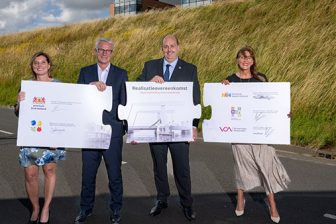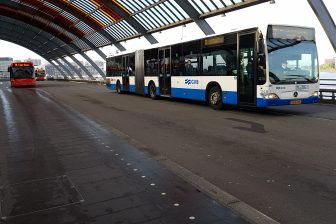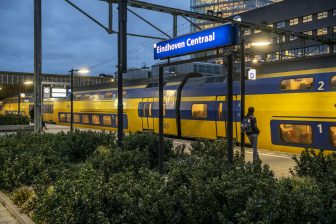EC announces new action for Clean Public Transport
The European Commission has released 2006-05-11 the results from the world’s largest trial of Hydrogen Fuel Cell Powered Buses at the Clean Urban Transport for Europe (CUTE) Conference in Hamburg, and announced the launch of a new hydrogen initiative. Since mid-2003, 27 public transport buses have covered more than 1million km and carried more than 4 million people in 9 European cities[1], producing zero emissions and causing no accident during their operation. The buses operated as part of the CUTE Project which has just come to a close. The new “Hydrogen for Transport” initiative, will involve the daily operation throughout Europe of around 200 hydrogen-powered vehicles and the corresponding hydrogen supply infrastructure.
Energy Commissioner Andris Piebalgs welcome these positive results saying. “This project marks a milestone in the history of clean transport energy technology and opens the way to a new era of sustainable transport systems. The question is no longer weather this technology works, but when will it be competitive.”
The buses that run under the CUTE Project use hydrogen as a fuel to power the fuel cells – electro-chemical devices that use oxygen from the air in combination with hydrogen to make electricity to drive an electric motor- and produce zero emissions. The achievements of the CUTE project include:
- The design, construction and operation of nine different hydrogen supply chains and refuelling stations
- The production and use of more than 192 tonnes of hydrogen, of which 100 tonnes from renewable sources
- The safe implementation of nearly 9000 bus refuelling operations
- A bus availability greater than 90%
A series of further demonstration projects grouped under the initiative “Hydrogen for Transport” will put some 200 hydrogen-powered vehicles on the roads over the next three years. This represents a total public-private investment of €105 million, of which the European Commission contributes €48 million. “Hydrogen for Transport” includes HyFLEET:CUTE[2], ZERO REGIO[3] and HyCHAIN:MINITRANS[4].
HyFLEET:CUTE will see the operation of nearly 50 hydrogen powered buses on three continents around the globe. 34 hydrogen fuel cell buses will operate in Amsterdam, Beijing (China), Barcelona, London, Luxemburg, Madrid, Perth (Western Australia), and Reykjavik (Iceland), while 14 hydrogen buses powered with internal combustion engine (ICE) will come onto the Berlin streets. The project will also see the development of new generations of more efficient and more competitive buses in both technologies.
ZERO REGIO will see the operation of 8 fuel cell passenger cars in Frankfurt and Mantova.
HyCHAIN:MINITRANS will operate 158 small transport vehicles (mini vans, mini buses, scooters, cargo bicycles and wheel chairs) in France, Germany, Spain and Italy. These small vehicles represent a market of millions of units, and could very well be the entry point for hydrogen and fuel cells.
Further information can be found for ‘CUTE’ in www.fuel-cell-bus-club.com and for ‘Hydrogen for Transport’ in www.hylights.org
For additional information:
IP/05/1672 : The European Commission wants to promote clean vehicles
MEMO/05/495 : Directive on the promotion of clean road transport vehicles
[1] Amsterdam, Barcelona, Hamburg, London, Luxembourg, Madrid, Porto, Stockholm and Stuttgart
[2] Hydrogen for Clean Urban Transport in Europe
[3] Lombardia & Rhein-Main towards Zero Emission: Development & Demonstration of Infrastructure Systems for Hydrogen as an Alternative Motor Fuel
[4] Deployment of innovative low power fuel cell vehicle fleets to initiate an early market for Hydrogen as an alternative fuel in Europe
U las zojuist één van de gratis premium artikelen
Onbeperkt lezen? Profiteer nu van de introductieaanbieding voor € 10,- per maand.
Bent u al abonnee?



